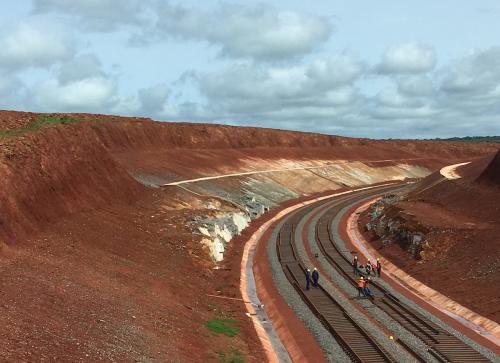Thanks to Tony Blair, who has made aid to Africa a centerpiece of the G-8 Summit next month, Nigeria may emerge from the mountain of debt that has plagued the country for more than ten years. A critical step will be the special meeting of Paris Club creditors scheduled for June 29.
One of the remarkable features of this case is that, generally speaking, Nigeria has a good record of servicing its external debt. In contrast to the Heavily-Indebted Poor Countries (HIPCs), Nigeria has been meeting its debt service obligations to the World Bank and other multilateral creditors—and to commercial creditors—with no particular strain.
Nigeria’s debt problem is entirely related to loans it received from the governments of fifteen Paris Club members (UK, France, Japan, Germany, etc.) in the 1980s. The problem reflects a flaw in the Paris Club debt-restructuring process more than Nigeria’s inability or unwillingness to pay. What we have here is a case of non-performing creditors.
To see the flaw, some historical perspective is necessary. In 1985, Nigeria’s external debt was $19 billion, of which $8 billion was owed to Paris Club creditors, $2 billion to other creditor countries (e.g., Bulgaria), $8 billion to commercial creditors, and $1 billion to multilateral agencies (mostly the World Bank and the African Development Bank). At the end of 2004, the Nigeria’s external debt was $36 billion. Of this amount, $31 billion was owed to Paris Club creditors, almost nothing to other bilateral official creditors, $3 billion to multilateral agencies, and $2 billion to commercial creditors.
Why did Nigeria’s Paris Club debt balloon by $23 billion over the past 20 years when debt owed to other creditors fell by more than half? In brief, the Paris Club creditors stopped making new loans to Nigeria because they disliked the country’s military dictatorship. The bulk of the $23 billion increase represents interest arrears, interest charged on these arrears, and penalties that accumulated after 1992 when the Paris Club creditors refused to negotiate a debt workout for political reasons, compounded by adverse exchange rate changes. Less than $400 million of the debt represents post-1985 borrowing.
By contrast, Nigeria’s commercial bank creditors concluded a Brady Bond exchange in 1992 in which their claims were written down by 60 percent. Since then Nigeria has maintained an excellent record of servicing its commercial debt despite getting virtually no new loans from commercial creditors. Nigeria has also been punctual in servicing its debt to multilateral agencies. They in turn have continued making loans, leading to a tripling of their exposure over the past 20 years. Finally Nigeria has paid off almost all of its debt to non-Paris Club bilateral creditors, many of which waived interest charges and penalties.
If a non-political, businesslike approach had been taken to Nigeria’s debt-servicing problems ten years ago, an extraordinary deal would not be required now. This is not to say that Nigeria is blameless. The country has squandered its oil wealth for a generation. It missed a chance to conclude a debt reduction deal with the Paris Club following an interim rescheduling in 2000 because it was unable to meet some relatively modest economic performance targets.
The inescapable reality for the Nigerian people, however, is that their government has received virtually no new loans from Paris Club creditors after 1992, it has paid almost $8 billion to these creditors since then, and yet it still owes them $14 billion more than it did in 1992. Moreover, instead of applying Nigeria’s payments to post-1985 loans to make these performing loans, the creditors have applied the payments against arrears and penalties.
Fortunately the Paris Club has demonstrated time and again since its creation fifty years ago an ability to adapt its rules to a changing world. Moreover it now has two new tools to work with: debt reduction in stages for middle-income debtor countries, and buybacks of outstanding debt.
Given the exceptional nature of Nigeria’s debt problem an exceptional solution is called for. A strong case can be made for debt cancellation phased over 2-3 years on the order of 80 percent, blowing the froth off the debt. A buyback of half of the remaining $6 billion of debt would leave Nigeria with $3 billion of Paris Club debt, putting these creditors on a par with the country’s multilateral and commercial creditors.
Most Nigerians and many NGOs would prefer a deal that eliminates all Paris Club debt. A deal that leaves a modest stock of Paris Club debt to be serviced, however, would have the advantage of highlighting Nigeria’s status as a performing debtor. A good test of any deal is how far it goes in restoring Nigeria’s access to international capital markets.
Nigeria’s democratic government has worked hard over the past six years to improve governance. It has implemented tough economic reforms in a politically volatile domestic context. It deserves a fair deal from the Paris Club. The Paris Club now has a brief window of opportunity to re-reinforce its reputation as a problem-solver.



Commentary
Op-edThe Paris Club Owes Nigeria A Fair Deal
June 27, 2005